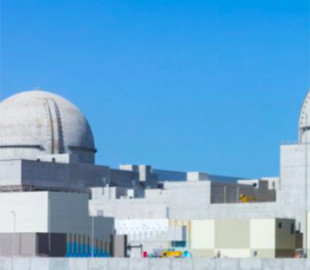Baraka NPP has four reactors and can produce up to 40 terawatt-hours of electricity per year.
In 2024, all four reactors of the Baraka nuclear generator in Dubai will start operating. It is expected to cover up to 25% of the UAE's electricity needs. Ecoticias writes about this.
Baraka NPP has four reactors and can produce up to 40 terawatt-hours of electricity per year. Construction of the station began in 2012. Each reactor was commissioned separately to test safety and reliability.
As of 2024, all four reactors will be operational, making the Baraka nuclear plant the first in the region to operate continuously.
Nuclear power — an unexpected choice for the UAE, given that the country has large reserves of natural gas and oil. However, the realization that fossil fuels and non-renewable sources will eventually run out forces such solutions.
The global energy crisis will one day reach Dubai and Abu Dhabi, and the UAE wants to make sure people have a choice before it's too late.
The UAE uses four times as much electricity as the whole of New Zealand. The presence of air conditioners everywhere, combined with megacities like Dubai, results in huge electricity costs.
Baraka's nuclear power generators are believed to be able to produce up to 25% of the UAE's energy quota. The electricity produced by the station will be used for civil and industrial purposes.
200% Deposit Bonus up to €3,000 180% First Deposit Bonus up to $20,000It was not easy for the UAE to prepare its energy system for the adoption of nuclear energy. The construction of the new infrastructure took a long time, but now the nuclear power plant is successfully operating.
Some industries are already receiving electricity generated by the plant, including Abu Dhabi National Oil Company, Emirates Steel and Emirates Global Aluminum. This step helps the country achieve greater energy security, which is important in a very volatile energy market.
The Fukushima disaster in Japan in 2011 turned most of the world against nuclear power. Although nuclear power is extremely efficient, it operates at such high temperatures that the risk of explosion is much higher than with other generators. Even more dangerous is the presence of radioactive materials, which are the waste of nuclear installations.
In the Arab world, plans to invest in nuclear generators continued even after the tragedy in Fukushima. Fortunately, Arab countries such as the UAE are not prone to earthquakes and tsunamis. The UAE has also invested in the latest and safest nuclear reactor technology to ensure that no such disasters occur in the future.
The Barakah Nuclear Power Plant in the UAE has changed the entire landscape of energy production in the Arab world. Saudi Arabia, the world's largest oil exporter, has announced that investment in nuclear power is a top priority going forward. As the fossil fuel well depletes, more and more countries around the world will have to switch to renewable or greener energy solutions.

